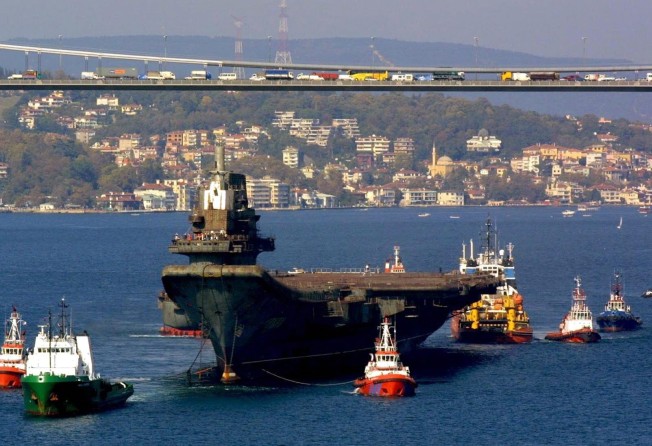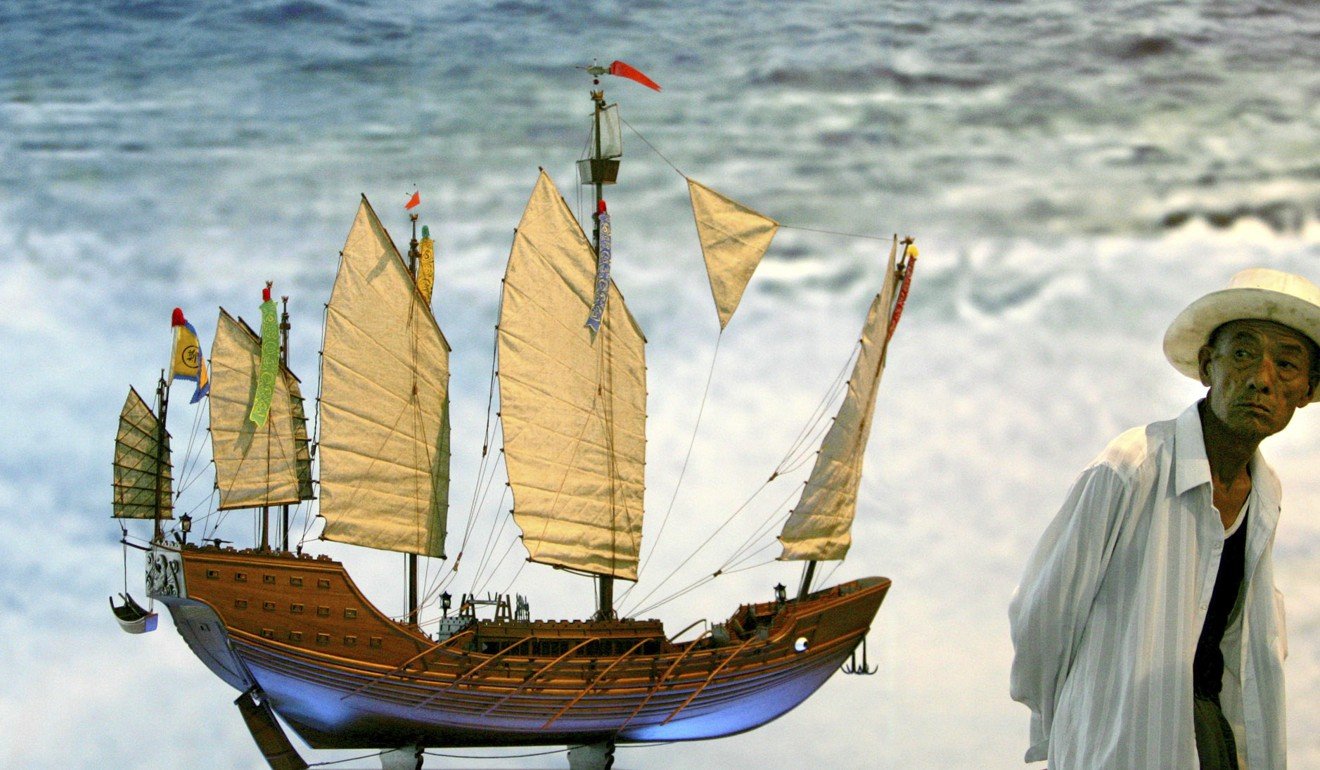
Soviet-built Liaoning pales in comparison to Zheng He’s majestic fleet
Pioneering Chinese admiral’s 15th-century ships were the largest of their day

The visit of China’s first commissioned aircraft carrier, the Liaoning, to Hong Kong recently was yet another attempt by Beijing to inspire national pride among residents of this fractious city.
While muscular displays of military hardware are standard in any nation’s mythmaking enterprise, I question the cogency of beating the nationalistic drum with the Liaoning, an unfinished Soviet-era vessel sold by Ukraine under convoluted circumstances and pimped up to its current state by China’s navy.

Admiral Zheng He’s seven sea voyages, between 1405 and 1433, which took him all the way to the east coast of Africa and the Arabian Peninsula, were taken on ships built entirely in southern China. The flagships of that massive fleet of more than 200 vessels measured 150 metres long, 60 metres wide and could carry 1,000 men. Half the size of the Liaoning, they were nevertheless the biggest ships in the ancient world.

Those watching such leviathans advancing towards their shores would have been impressed or even frightened by the majesty of the Chinese fleet. But unlike the Europeans who came after them, Zheng and his men had not set out to conquer. They had no intention of claiming foreign lands in the name of the Chinese emperor.
Strangely enough, we are still not sure why China embarked on that short-lived but spectacular maritime adventure.